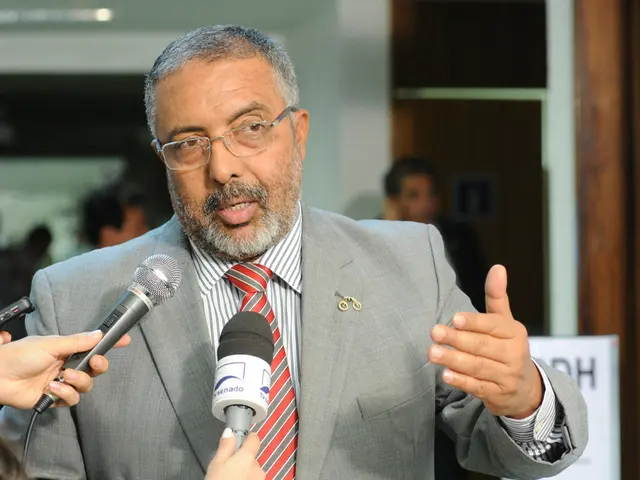Israeli sanctions do not encompass Merz
The European Union (EU) is considering imposing sanctions against Israel, with EU Commission President Ursula von der Leyen leading the charge. The proposed sanctions are a response to Israel's military actions in the Gaza Strip and include measures such as the removal of preferential trade agreements covering 37% of Israel's exports to the EU.
Von der Leyen has also proposed sanctions against Israeli politicians Bezalel Smotrich and Itamar Ben-Gvir, who are accused of human rights violations and incitement to hatred. However, the discussion about these sanctions is a point of contention within the EU, and within the German government in particular.
German Chancellor Friedrich Merz has criticized Israel's actions as violations of international law but remains cautious about sanctions. The German government, including Foreign Minister Johann Wadephul, currently opposes EU sanctions against Israel, arguing that such measures would be ineffective. Instead, they support more targeted steps such as restricting arms exports to Israel.
The German government aims to establish a position regarding the proposed sanctions by the EU summit at the beginning of October. This position is expected to be supported by the entire federal government, with the SPD advocating for putting more pressure on Israel. However, within the CDU, there is disapproval of trade sanctions but some openness to personal sanctions. The CSU is strictly against further sanctions.
The discussion and potential decision about the proposed sanctions against Israel will take place during an informal council in Copenhagen in the coming week. This council will bring together EU leaders to discuss a range of issues, with the proposed sanctions against Israel being a key topic.
The proposed sanctions against Israeli politicians have been sharply criticized by many countries, adding to the complexity of the issue. As the EU summit approaches, the question of whether and how to proceed with the proposed sanctions against Israel remains unresolved.
Federal Chancellor Friedrich Merz is currently on an inaugural visit to Madrid, where he is discussing a range of issues with Spanish Prime Minister Pedro Sánchez. However, the topic of the proposed sanctions against Israel did not come up during the press conference with Sánchez.
As the EU summit approaches, the world waits to see whether the EU will impose sanctions against Israel and, if so, what form those sanctions will take. The decision will have significant implications for Israel and the EU, and for the broader Middle East region.
Read also:
- United States tariffs pose a threat to India, necessitating the recruitment of adept negotiators or strategists, similar to those who had influenced Trump's decisions.
- Weekly happenings in the German Federal Parliament (Bundestag)
- Southwest region's most popular posts, accompanied by an inquiry:
- Discussion between Putin and Trump in Alaska could potentially overshadow Ukraine's concerns







